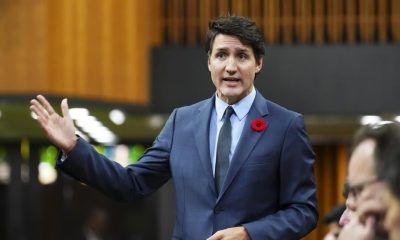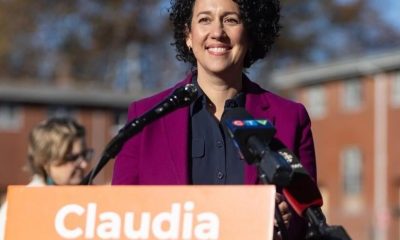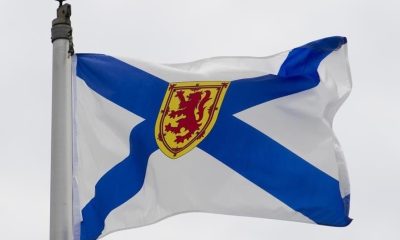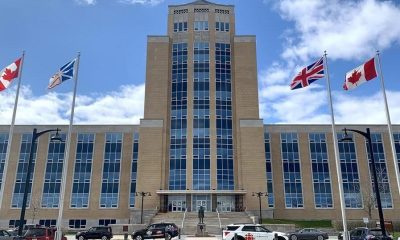TORONTO – Statistics Canada‘s latest financial security survey shows a stark disparity between the wealth of homeowners and renters, even as it fails to capture the true scale what’s owned by Canada’s richest families.
The survey, conducted only every few years, shows home-owning families whose main earner was 55 to 64, and who had an employer-sponsored pension, had a median net worth of $1.4 million in 2023. Renters without a pension plan in the age group had a median net worth of $11,900.
Home ownership was the main factor in the difference, as those who owned their home but didn’t have a pension had a median net worth of $914,000, while those with a pension but did not own had a median net worth of $359,000.
The data released Tuesday also shows Canadians of all income brackets are trying to get into real estate, said Dan Skilleter, director of policy at economic inclusion non-profit Social Capital Partners.
“The most striking numbers they have in here are about just the growth of real estate as an asset class,” he said.
“So it’s clear everyone’s been getting signals about how important that is, and I think that is dysfunctional, and has been leading to an unsustainable situation where real estate has become an essential stepping-stone to really have any financial security in Canada.”
The picture in the report was similar for families whose main earner was under 35, as the median net worth of those who own their principal residence was $457,100, compared with $44,000 for those who don’t.
The gap for young families is even larger than at first glance though, as Statistics Canada notes that of that $44,000 net worth, an increasing amount is due to renters owning real estate that is not their principal residence.
It noted that of renters without pensions, 15 per cent had a net worth above $150,000 in 2023, compared with five per cent in 2019, as more buy into real estate.
Overall, the survey found the median net worth of Canadian households was $519,700, up 57 per cent from 2019 when it was last conducted.
The median wealth of households under 35 was $159,100, up from $56,400 in 2019, while the 55 to 64 category was the richest at $873,400, up from $797,000 four years earlier.
The survey involved a 45-minute questionnaire sent to a sampling of almost 40,000 homes to provide a detailed view of what families own and what debts they have.
“It’s really the only survey we have where the government gets to peer into the full financial story of families,” Skilleter said.
The survey, however, has a significant blind spot for Canada’s wealthiest. Statistics Canada divides the survey in tiers to make sure various household categories are represented, but the highest tier is the wealthiest five per cent in Canada, meaning anyone above about $2.4 million for the 2019 survey.
The broad top category means the top one per cent, and 0.1 per cent, are hardly captured, Skilleter said.
“What’s not part of the survey is to take a broader look at the Canadian economy and see: is wealth concentration in general getting worse or getting better,” he said.
“And much to my dismay, they can’t even take a stab at answering that question, because they don’t set up their survey to even have a good chance of getting a single billionaire or 100 millionaire to take the survey.”
The richest family in the 2012 version of the survey had a net worth of $23.7 million, and $27.3 million in the 2016 report, while Credit Suisse estimates there are more than 5,500 Canadians with a net worth of more than $50 million, including 120 with a net worth of more than $500 million, Skilleter noted in an April report.
Statistics Canada said the share of wealth held by the top one per cent will be understated in this data source. Skilleter notes that the U.S. specifically carves out a tier for billionaires to make sure they’re represented in the results of its wealth survey, which helps to show the economic inequality in that country.
Canada has looked more equal based on the data from the survey, but it can be misleading.
Data from the 2019 survey was used to estimate Canada’s top one per cent held about 13.7 per cent of wealth, and the 0.1 per cent held 2.8 per cent. But combining the survey with outside data like the Forbes rich list, the Parliamentary Budget Officer estimated that the top one per cent held 24.8 per cent, and the top 0.1 per cent held 11.2 per cent of overall wealth.
“We’re not even being made aware of the ways in which ownership of capital is dramatically increasing the fortunes of some,” Skilleter said.
“That would give rise to a more frank conversation about the different ways that public policy…could intervene and make people’s lives better.”
This report by The Canadian Press was first published Oct. 29, 2024.

/cloudfront-us-east-1.images.arcpublishing.com/tgam/GXSKFD5S3FIEXJFCLAKBGBE22A.jpg)
























